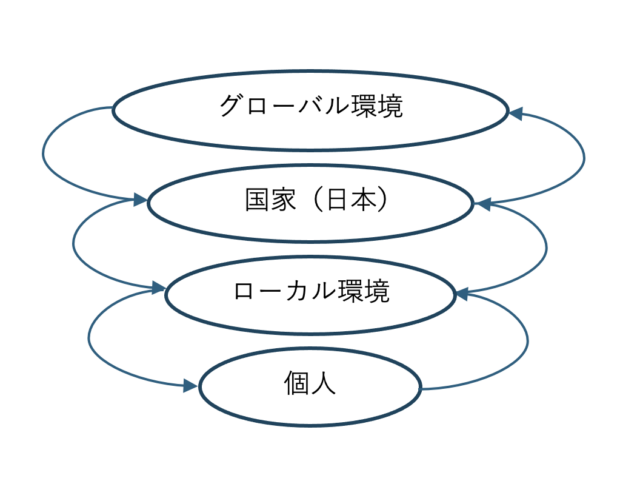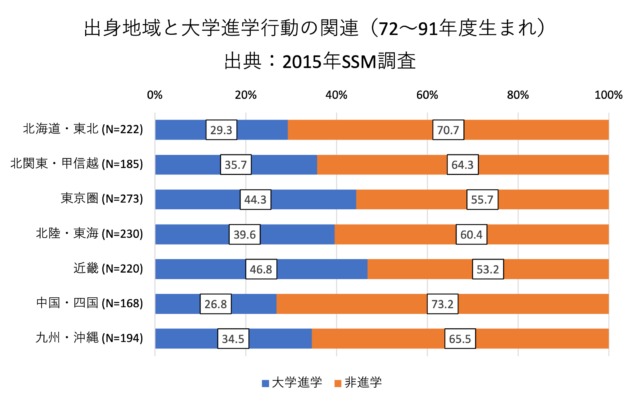Profile
- Research Subject
1. The research on the regional inequality of educational attainment
2. The mechanism of how community make social attitudes
3. The methods of urban sociology
- Research Fields
- Urban and regional sociology, Quantitative sociology
- Faculty - Division / Research Group / Laboratory
- Division of Human Sciences / Research Group of Sociology / Laboratory of Sociology
- Graduate School - Division / Department / Laboratory
- Division of Human Sciences / Department of Sociology / Laboratory of Sociology
- School - Course / Laboratory
- Division of Humanities and Human Sciences / Course of Human Sciences / Laboratory of Sociology
- Contact
Email: m.hiramatsu(at)let.hokudai.ac.jp
Replace “(at)” with “@” when sending email.Foreign exchange students who want to be research students (including Japanese residents) should apply for the designated period in accordance with the “Research Student Application Guidelines”. Even if you send an email directly to the staff, there is no reply.- Related Links
Lab.letters


Distance yourself from the traditional idea of a city and reframe your understanding of regional characteristics
Within the study of sociology, I look at urban and regional sociology as an academic field that positions itself between sociology and geography. By holding a city- or region-based perspective, we can distance ourselves from a large city centric approach exemplified by places like Tokyo or Osaka, and reframe the differences from the average idea of a city as unique characteristics of the target region. This is what I find extremely interesting. And thinking in those terms, we find the ideal field for urban and regional sociology in Hokkaido, which is home to everything from a city like Sapporo with some two million people to villages with only several hundred residents. I invite you to work with data to clarify what kinds of locations and times exist beyond the superficial Hokkaido cliches like “snow” or “bears”. Real investigation will reveal that the true nature of a region is not merely a homogenous copy of metropolises after all.
Your efforts in a contact zone will pay off in results
With people assembling from all over Japan, Hokkaido University is what sociologists call a contact zone, or an area where different types of people meet. I myself viscerally experienced culture shock many times when I left my home region of Hokuriku to go to school in the Kansai area, and my experiences of that time are linked to my current research. In the same way, the diverse land of Hokkaido also offers an expansive stimulating environment in which both Hokkaido natives and those from other areas can grow and mature together. The four years you spend in undergraduate studies before jumping up further into the graduate school is a time for you to develop powerful jumping springs. If you engage seriously in areas like sociology, linguistics, and data analysis, it will definitely pay off later in internalizing the skills you practice. I invite everyone to not shy away from serious study, and to utilize the varied resources of Hokkaido University in a devoted quest to build knowledge that will lead to understanding diversity.
Message
My main focus is urban sociology, and I always keep three things in mind in my research. The first is that the region defines the lifestyle and awareness of people. If the region that you were born and raised in, or are currently living in, gradually defines your life without you even being aware of it, is that not strange and at times even unequal? The second point is that the regional migration (influx and outflow) changes the nature of a region. For example, people of a certain ethnicity may be more likely to reside in a particular area, while rich households raising children may move to a region with high public education standards for their children’s education. The third point is that people create and change cities and regions. People are not passive entities who allow their lives to be completely shaped by their region. They have the power to recreate their regions on their own or with the help of others.
Cities and regions are dynamic fields where these three phenomena emerge in overlapping ways. I wholeheartedly invite people who are interested in social phenomena and issues pertaining to cities and regions to study and research together. I am mainly involved in quantitative research, but I also welcome qualitative research as well as research using map data.




